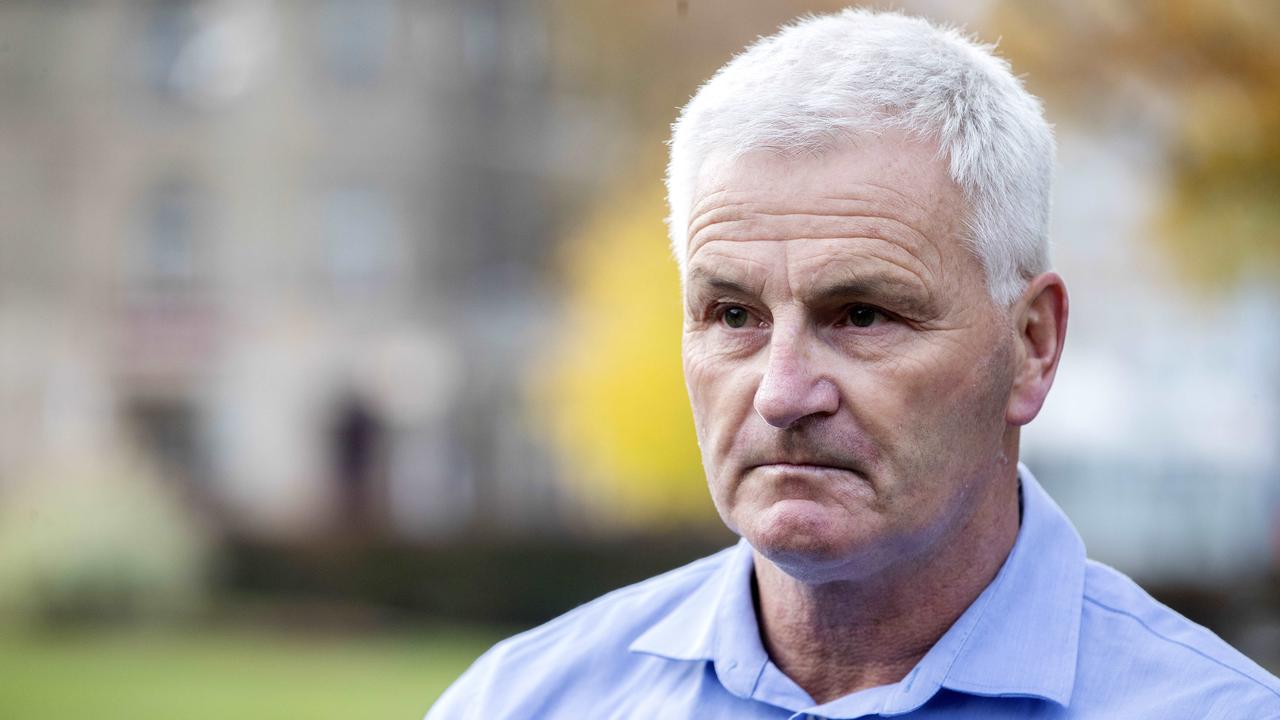Leaked documents reveal state govt’s ‘weasel’ plan to divert people from public housing
The state government was trying to keep a lid on the public housing list by telling people seeking accommodation to stay with family or friends, Labor claims.
Coronavirus
Don't miss out on the headlines from Coronavirus. Followed categories will be added to My News.
- Another state service worker stood down over sex abuse claims
- MEGA GALLERY 60+ PHOTOS: UTAS graduations 2020
THE state government was trying to keep a lid on the public housing list by telling people seeking accommodation to stay with family or friends, Labor claims.
Opposition housing spokeswoman Alison Standen said internal documents showed it wanted to divert people away from seeking government help.
“Where possible, divert people from the Housing Connect system into familial/community level supports if they have minimal service needs and high capability,” a leaked Housing Connect document reads.
Ms Standen said the government was dodging its responsibilities to people in need of housing.
“That’s weasel language that means the government is now telling people if you are waiting on a house, give up and go and knock on a relative’s door,” Ms Standen said.
Acting Housing Minister Mark Shelton said Ms Standen was wrong and spreading “fake news”.
“To be 100 per cent clear, no one will be ‘kicked off’ the Housing Register,” he said.
“A housing applicant will only come off the Housing Register when their housing needs are met … there has not been, and nor will there be, changes to determining eligibility and priority for the wait list.”
COVID-19 restrictions left homeless kids isolated
HOMELESS children without the support of a parent or guardian were further isolated and lost critical support amid restrictions brought about by the COVID-19 pandemic, a new report has found.
Research by Anglicare Tasmania showed unaccompanied homeless children were adversely affected by measures designed to contain the spread of the virus, including the limiting of face-to-face contact with social workers.
Report author Catherine Robinson, of Anglicare’s social action and research centre, said these changes had resulted in the deterioration of children’s physical and mental wellbeing.
“When COVID hit, key services who would normally provide face-to-face support for unaccompanied homeless children reduced their face-to-face support … that is a key change in practice for children who rely on those workers as pseudo parents,’’ she said.
“Remembering these kids do not have a parent or guardian who is consistently or actively providing care and they do not have access to secure and safe accommodation.”
During the research, Dr Robinson interviewed 24 frontline workers from 10 different community service organisations between May and November.
Anglicare has made a range of recommendations to support unaccompanied homeless children during future public health emergencies, including:
- CHILD and youth services supporting vulnerable clients were classified as essential;
- EMERGENCY accommodation options for affected youth are increased;
- VULNERABLE children are transported to and from COVID-19 testing;
- A GREATER focus on school-based homelessness prevention, and;
- MEDIUM-term residential care options for unaccompanied homeless children are implemented.
Dr Robinson said the removal of face-to-face contact meant children lost support to go to medical and Centrelink appointments, or to attend court.
She also said because they were homeless, they could not possibly comply with COVID-19 restrictions, such as stay-at-home directives.
“These kids are highly mobile and because they don’t have a home, there is nowhere for them to isolate,’’ Dr Robinson said.
“And so they are moving through the community extensively, so this is about a community risk as well as the risk to these individual kids.”
Anglicare chief executive Chris Jones said the organisation had “huge admiration” for the work done by state authorities to deal with COVID-19, but said more needed to be done for vulnerable young people.
“All we’re saying is this is a group that’s missing out, put them in your plans,’’ he said.
“Do what you need to do to make sure we can get these children supported when we need to.”
A state government spokesman said the report’s recommendations would be considered in the context of other initiatives to better support young people at risk of homelessness.
The spokesman said during the COVID-19 pandemic, the government had committed $500,000 to support that cohort.
“This investment has increased our capacity to deliver services such as intensive case management, outreach support, mediation and family reunification,’’ he said.


